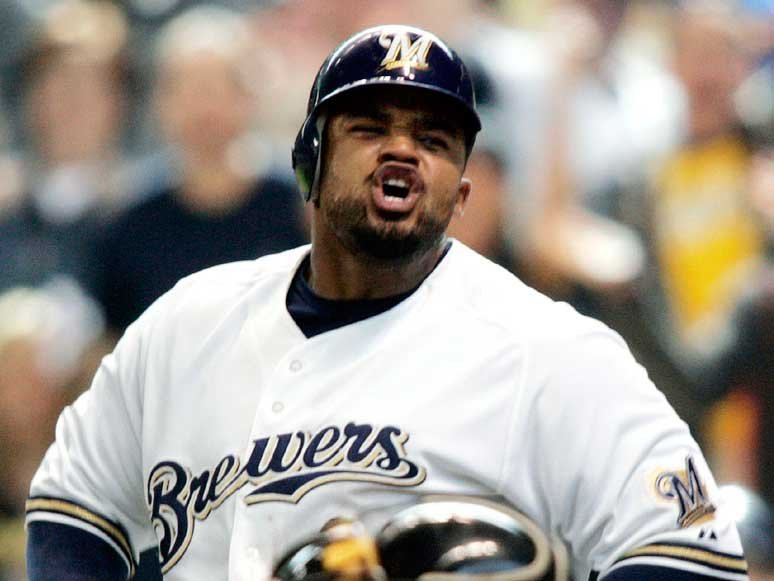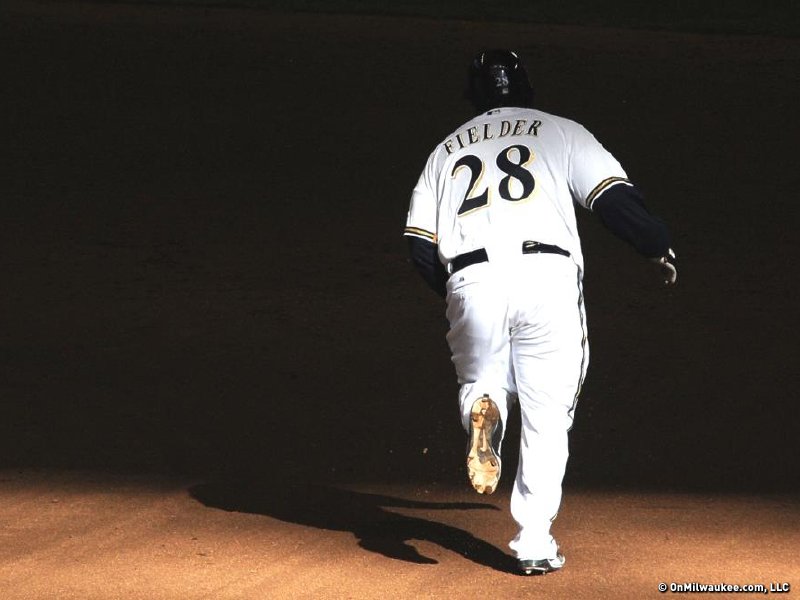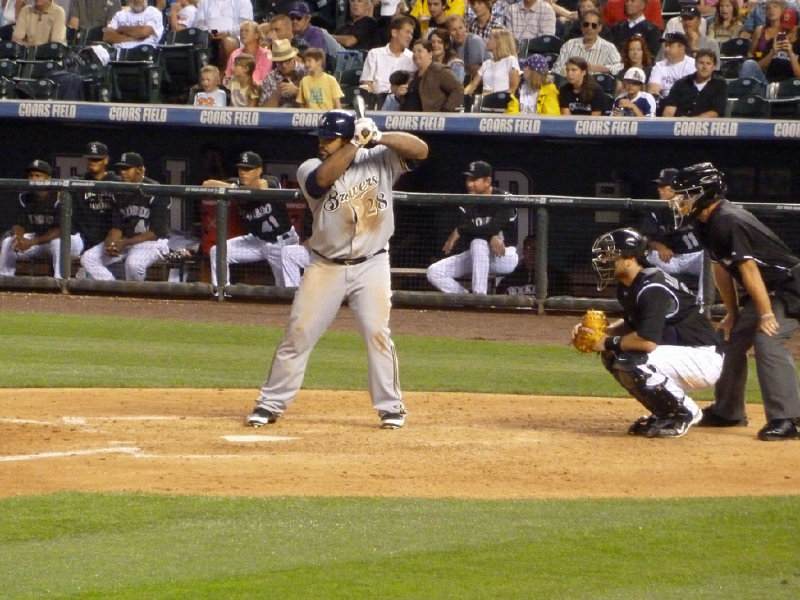Reports out of Arizona indicate that Brewers first baseman Prince Fielder is unhappy.
That could be bad news for opposing pitchers. As several teams have discovered, Fielder has a tendency to vent his frustration and anger by pummeling baseballs.
But, could this also be bad news for the Brewers?
It might.
The root of Fielder's unhappiness has little to do with his recent conversion to vegetarianism and everything to do with his contract. The Brewers renewed his deal on Sunday for $670,000. The term "renewed" is a bit misleading in this case. Fielder made $415,000 last season and all he did to earn that was carry the team on his broad shoulders for most of the year, make a strong run at National League MVP honors and become the youngest player in history to hit 50 homers.
While most Americans would be thrilled with a $255,000 raise, baseball has its own economic system. One of the core principles of that system is that players in Fielder's circumstance -- those with less than three years of big-league service -- get systematically screwed.
Here is why: for the first six years of their careers, major league players function as indentured servants. For the first three years, players generally earn salaries close to the major-league minimum salary, which this year is $390,000. There are increases for strong performance, but high-performing players like Fielder generally are underpaid relative to their peers until after their third season.
That's when they are eligible for salary arbitration.
The arbitration process in baseball is also different than in other legal / business spheres. The team submits a contract offer to a player, who can accept or reject it. If the player and team don't agree to terms before a specific date, they both submit figures to an arbitrator, who hears testimony from both sides and rules in favor of one or the other.
In many cases, teams and players will exchange arbitration figures, prepare their respective cases and then avoid a hearing by reaching a settlement somewhere near the mid-point between the exchanged figures. (That's what happened with Brewers shortstop J.J. Hardy a few weeks ago.)
Fielder, who is entering his third season, will be eligible for arbitration for the first time next season. If he plays well this year, chances are he will approach the $10 million figure that Phillies slugger Ryan Howard won in arbitration this year.
Again, renewed is a misnomer. The Brewers negotiated with Fielder's agent, Scott Boras, and couldn't reach an agreement. They then exercised their right to "renew" Fielder, which basically means they could sign him for any salary they wanted.
Technically speaking, the Brewers didn't have to give Fielder a raise. They arrived at the $670,000 figure by using a series of benchmarks that they have established. General manager Doug Melvin thinks his system is fairer and less arbitrary than what other clubs undertake and most Brewers with one to three years of service time make salaries in the same range as players with similar birthdates and production.
Brewers Ryan Braun ($445,000) and Corey Hart ($444,000) also saw their contracts renewed on Sunday. They both told reporters that they understood the "pay your dues" nature of the situation and weren't upset.
Fielder was.
At this point, some fans may say "If Prince is so unhappy with his deal, why doesn't he hold out?" That's a good question. Holdouts virtually never happen for players with less than three years of service time. Most of them take the classic "it is what it is" posture and wait for their turn at arbitration to hit the jackpot. (It doesn't help that players who hold out miss compiling service time and thus have to wait longer for arbitration eligibility).
"I'm not happy about it at all," Fielder told Tom Haudricourt of the Journal Sentinel and Adam McCalvy of brewers.com. "The fact I've had to be renewed two years in a row. I'm not happy about it because there's a lot of guys who have the same amount of (Major League service) time that I do who have done a lot less and are getting paid a lot more.
"But my time is going to come. It's going to come quick, too."
He's right, of course. Even if he gets hurt or struggles this season, Fielder will be due a large raise in arbitration because of the numbers he posted as a freshman and sophomore. Don't worry about the contract hurting Fielder's performance. If anything, it will motivate him to match or surpass his performance of 2007.
Boras, one of the toughest agents in the business, is counting on that. Based on the agent's track record, he probably wouldn't have signed a one-year deal at any price this spring. Boras prefers to go year to year with his players. The Brewers may offer a multi-year contract to "buy out" Fielder's arbitration years and give the club some cost certainty moving forward, but Boras has generally avoided those types of deals in the past in order to roll the dice for a bigger payday.
Will what happened at the negotiating table this spring impact Fielder's future with the Brewers? Possibly. But, Boras has a track record and it doesn't bode well for fans who want to see Fielder playing at Miller Park in his seventh big-league season.
Boras generally avoids multi-year deals and shops his free agents to the highest bidder. Even if the Brewers win some playoff series and continue to set attendance records, they will be pressed to match the offers of big-market clubs.
Bottom line: the window for winning with Fielder runs through 2011. The Brewers must capitalize while they can and fans would be smart to enjoy the ride.
Host of “The Drew Olson Show,” which airs 1-3 p.m. weekdays on The Big 902. Sidekick on “The Mike Heller Show,” airing weekdays on The Big 920 and a statewide network including stations in Madison, Appleton and Wausau. Co-author of Bill Schroeder’s “If These Walls Could Talk: Milwaukee Brewers” on Triumph Books. Co-host of “Big 12 Sports Saturday,” which airs Saturdays during football season on WISN-12. Former senior editor at OnMilwaukee.com. Former reporter at the Milwaukee Journal Sentinel.







